
Israel’s Claim To Be a Great Democracy is Undermined By Its Mistreatment Not Only of the Palestinians But Also of Jewish Writers and Intellectuals Who Exposed the Ugly Truth Behind Israeli Policies and Strove For Peaceful Cohabitation with the Palestinians
On September 22, 1967, three months after Israel’s stunning victory over Egypt in the 6-Day War in which Israel acquired Gaza and the West Bank, members of Matzpen, an Israeli socialist organization supported by Arabs and Jews, placed an ad in the Ha’Aretz daily newspaper explaining their opposition to the occupation. It read:
“Our right to defend ourselves against annihilation does not grant us the right to oppress others. Conquests brings in its wake foreign rule. Foreign rule brings in its wake resistance. Resistance brings in its wake oppression. Oppression brings in its wake terrorism and counter-terrorism. The victims of terrorism are usually innocent people. Holding onto the territories will turn us into a nation of murderers and murder victims. Let us leave the Occupied territories now.”[1]
These words appear especially prophetic in the wake of the Tribe of Nova massacre and Israel onslaught on Gaza, which have very clearly turned Israel into a nation of murder victims and murderers.
Matzpen activists unfortunately were attacked by state media within Israel at the time that the statement was issued and the organization was identified as a national security threat and disbanded by the 1980s.
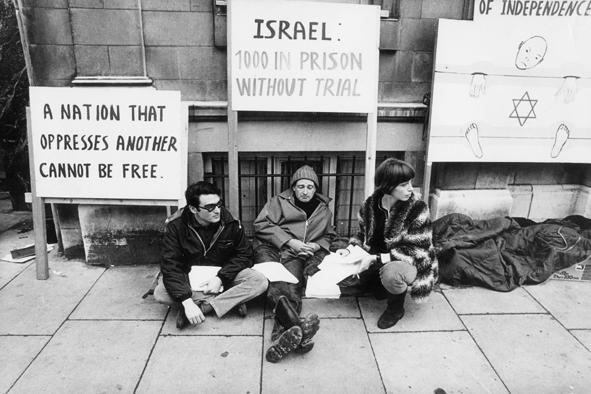
Daphna Levit’s book, Wrestling With Zionism: Jewish Voices of Dissent (Northampton, MA: Olive Branch Press, 2020) contextualizes Matzpen as part of a tradition of Jewish dissent that was marginalized or suppressed within Israel and failed to change the self-destructive trajectory of Israeli policies.
The tradition harked back to the prophets of ancient Israel like Isaiah, Jeremiah, Ezekiel, and Malachi who criticized kings, the wealthy and corrupt courts for violating the Mosaic commandments to create a fair and equitable society.[2]
Levit shows that in the early 20th century such Zionist luminaries as Ahad Ha’am (Asher Ginsberg), Martin Buber and Albert Einstein supported Jewish settlement in Israel on the condition that the Jews would treat the Palestinians respectfully and live in harmony with them—ideally in a binational state.
The Zionist wing was divided between these liberals and the antecedents of members of the modern Likud Party, who saw the Palestinians as a barrier to Jewish settlement and regional dominance and supported the forced removal and brutalization of the Palestinian people as in the Nakba, or ethnic cleansing of Palestinians which was carried out when Israel was first established as a state in 1948.
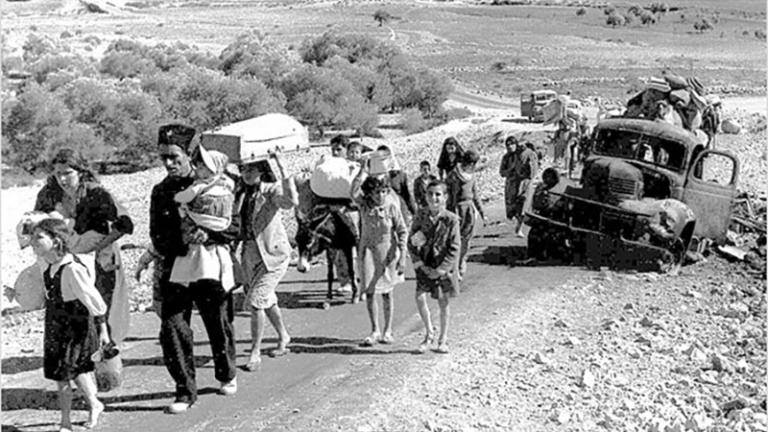
Sadly, the hard-liners won out and viewed the liberal/humanitarian Zionists as threats, treating them at times almost as poorly as they did the Palestinians, whose lives they had no regard for.
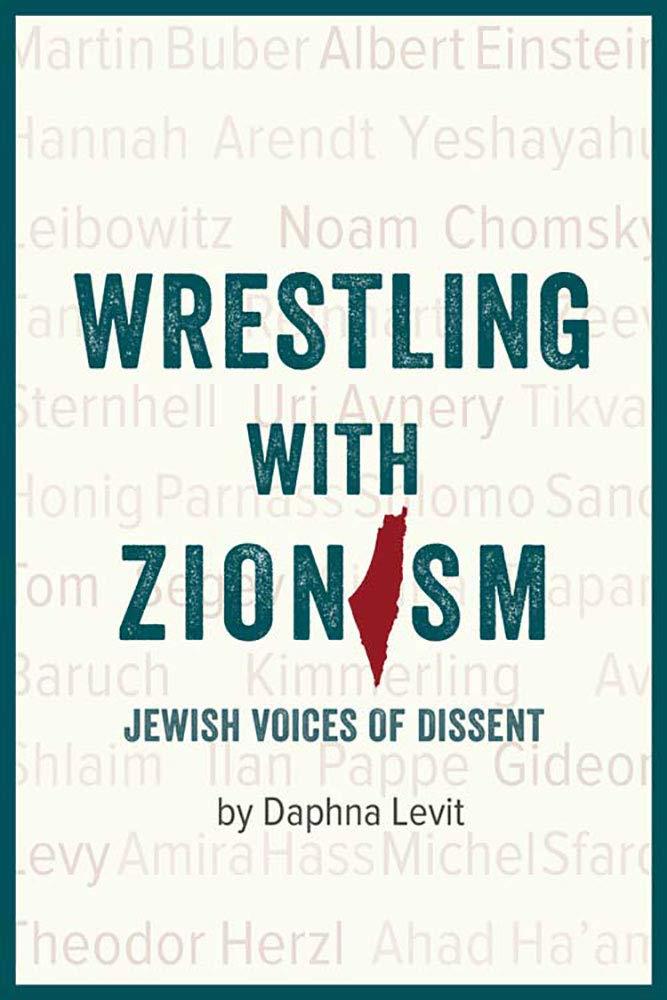
Ahad Ha’am
Born in Kyiv to a religious Hasidic family, Ahad Ha’am (1856-1927) was a prolific writer of essays in Hebrew who played a key role in the revitalization of the Hebrew language.
Participating in the first Zionist Congress in Basel, Switzerland in 1897 with Theodore Herzl, Ahad Ha’am wanted a Jewish state that would be an exemplar of Jewish morality and justice.
In 1891, after visiting Palestine for the first time, he wrote an essay “Truth from the Land of Israel” lamenting that Jews in Palestine were behaving in hostile and cruel ways to the native population.
Thirty years later, he wrote a letter to Ha’aretz after a revenge killing of an Arab boy by Jews asking “is this the dream of the return to Zion which our people dreamt for thousands of years: that we should come out to zion and pollute its soil with the spilling of innocent blood?”[3]
Levit stresses that Ahad Ha’am was a staunch defender of human rights who recognized that the Palestinians had been in Israel for millenia and had every right to pursue their own national identity, with no Jewish overlord.
He wrote that “The Arab people too, which we have always ignored from the very beginning of the colonization movement, listened and believed that the Jews were coming to expropriate its land and to do with it what they liked. All this inevitably led to friction and bitterness on both sides.”[4]
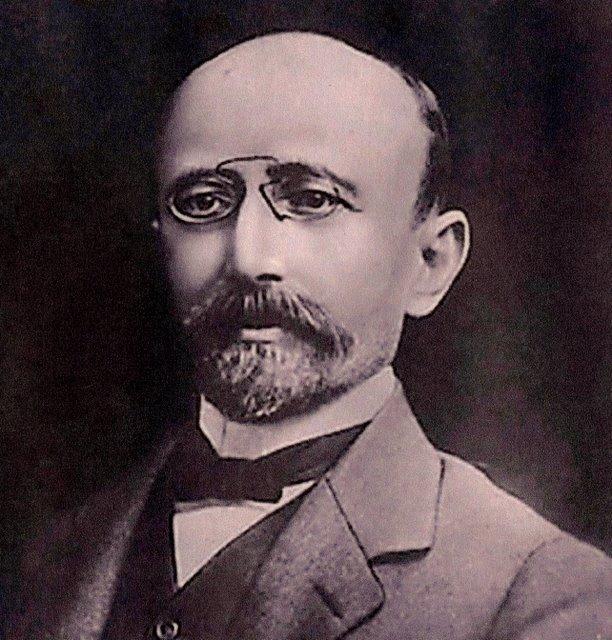
In much of his writing, Ahad Ha’am wanted Jewish settlers in Palestine to treat Arabs fairly, cautioning that hostility and cruelty would lead to resentment and put the Zionist project in grave danger. Implicitly endorsing a two-state solution, he stressed that the only legitimate claim Jews could make for a sovereign nation was if it reflected Jewish traditions of morality and universal conscience.
Levit writes that because his ideas so often contradicted the dominant narrative of contemporary Israel, he has been relegated to secondary status after Theodore Herzl and is not yet appreciated as the visionary that he was—except by those who actually read his essays.
Martin Buber and Albert Einstein
Martin Buber (1878-1965), a prolific philospher who translated the Hebrew bible into German, had tremendous respect for Ahad Ha’am whom he called a “true Zionist.”[5]
Buber shared Ahad Ha’am’s views that a Jewish state in Israel had to be an exemplary ethical community, and in the 1920s began advocating for a bi-national Jewish-Arab state with equal rights for both groups, claiming it was necessary for the Zionists to live in peace with the Arabs, even at the cost of Jews remaining a minority in that country.
Throughout his life as a Zionist, Buber wanted the main objective of Zionist policy to be cooperation with the land’s Arab inhabitants to guide the two nations of Palestine into a peaceful community. Buber rejected the idea of a national destiny, secular or religious, if it resulted in domination over any other nation, and was devoid of the Jewish spirit that seeks peace and redemption.[6]
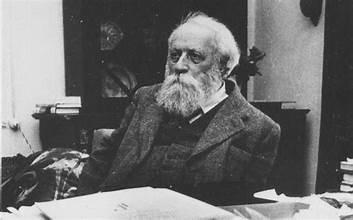
The famed Scientist Albert Einstein (1879-1955) held similar views to Buber, believing that peaceful coexistence in a Jewish homeland was more important than any national objective. Einstein supported a binational state in which Jewish-Arab cooperation was a prerequisite.
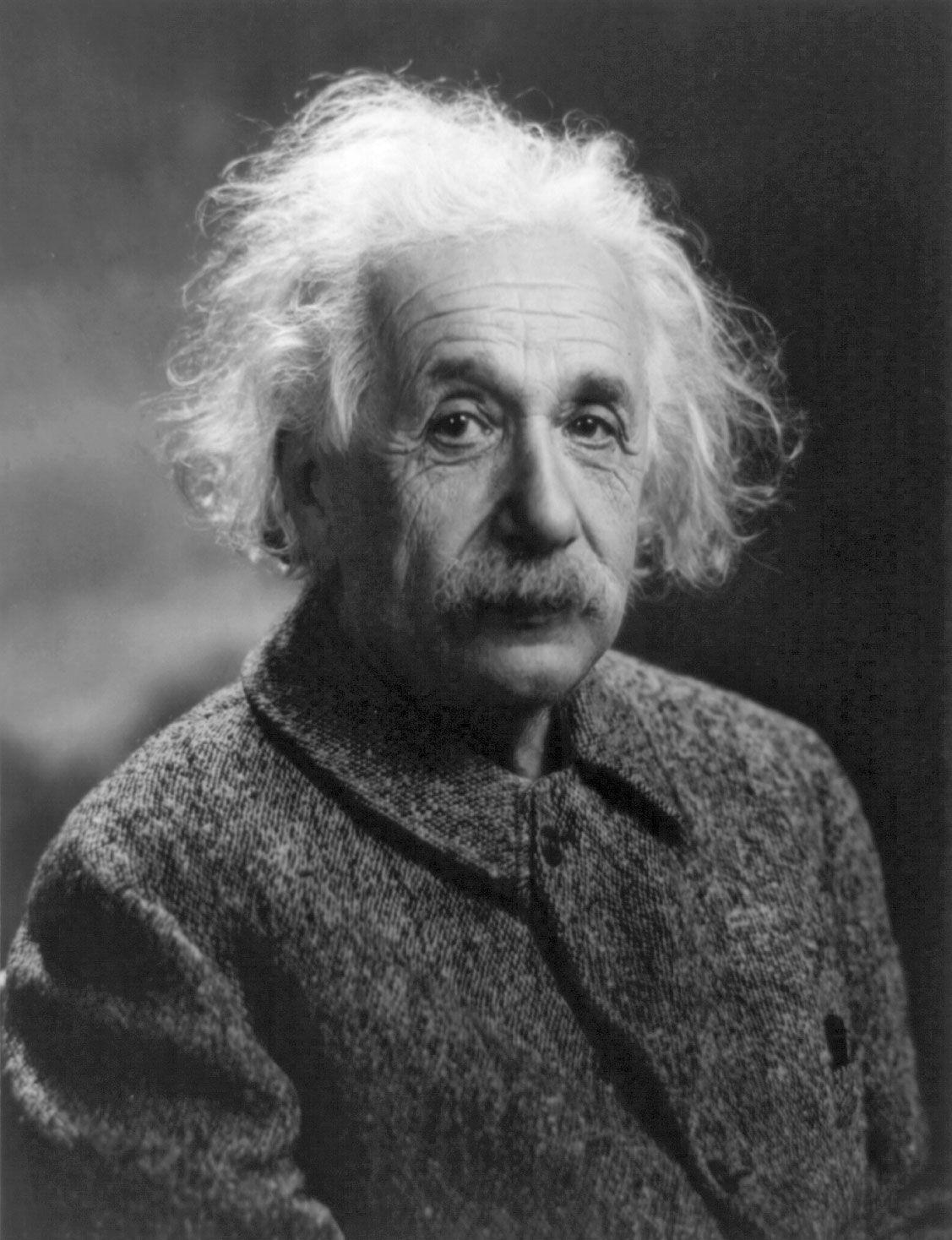
As a lifelong pacifist, Einstein in December 1948 joined a group of 28 prominent Jewish leaders including philosopher Hannah Arendt that wrote a letter to the New York Times denouncing Menachem Begin, the head of the Irgun and Israel’s future Prime-Minister (1977-1983), who had presided over an attack on the Palestinian village of Deir Yessin during the Israeli independence war, resulting in the death of many Palestinians, including women and children.[7]
The letter compared the Irgun to fascist parties in Europe, having been formed by members of the Irgun Zvi Leumi which was a terrorist, right-wing, chauvenist organization that had once bombed Jerusalem’s King David hotel.
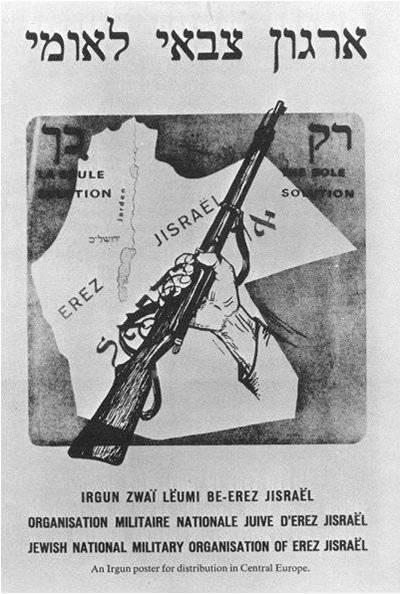
Hannah Arendt
Hannah Arendt (1906-1975) was a famous political philosopher who, like Einstein and Buber, envisioned a federated, pluralistic, democratic and secular Israeli state that would be a homeland for Palestinians and Jews coexisting peacefully as neighbors without any official state religion.
Much like Ahad Ha’am, Arendt wanted the Zionist project to develop slowly, through local agricultural and irrigation projects, to build trust among neighbors. She objected to an explicitly Jewish state, which she feared would always treat the Arab population as second-class citizens, and become militaristic and dominant.
At the time of the state’s formation, Arendt was appalled by the indifference of nationalist Zionists to the Arab population already residing in Israel and by their myopic political maneuvering with the bigger global powers—who were complicit in the Nazi Holocaust—for an exclusively Jewish state. “Only folly could dictate a policy which trusts a distant imperial power for protection, while alienating the goodwill of neighbors,” Arendt wrote prophetically.[8]
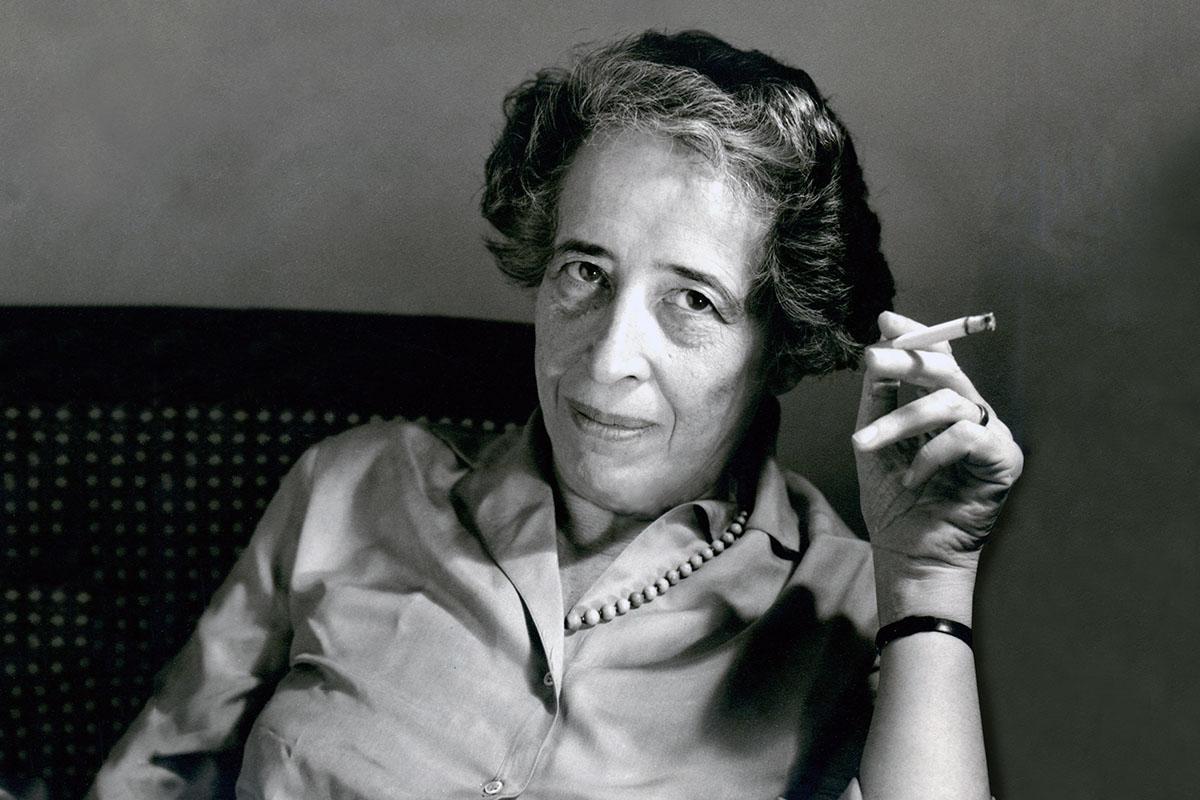
Yeshayahu Leibowitz
Known as the conscience of Israel, Yeshayahu Leibowitz (1903-1994) was a professor at Hebrew University and public intellectual who warned about the growing racist chauvenism of Israeli leaders and deplored the massacre of Arab civilians like in the Jordanian village of Kibiyeh by troops under the command of future Prime Minister Ariel Sharon.
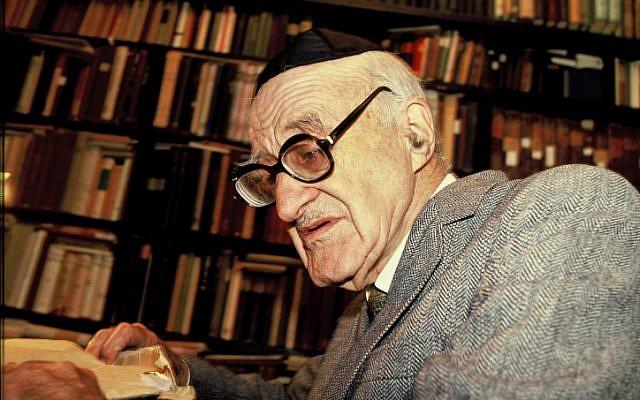
According to Leibowitz, during the years prior to the 1967 when Israel began occupying Gaza and the West Bank, there had been numerous opportunities for compromise with the Palestinians which the Israelis had squandered. In March 1972 in Ha’aretz, Leibowitz warned about Israel losing its soul as its defense forces were transformed into an army of occupation and Israel became a secret-police state. The occupation to him was an abomination that would result in Israel’s self-destruction as it became entrapped in perpetual war with its Arab neighbors and ruled over another people against its will.[9]
In a televised interview, Leibowitz claimed that Israel could not be considered a democracy as long as it ruled over two million people deprived of legal and human rights. He also condemned Israel’s Chief Justice of the Supreme Court for condoning the torture of Arab prisoners to extract information, which to him signified Judeo-Nazism, a term that he coined.[10]
Noam Chomsky
Chomsky was born into a Zionist family who as a youth was interested in socialist binational options for Palestine and the cooperative labor system that had developed in Jewish kibbutzim.
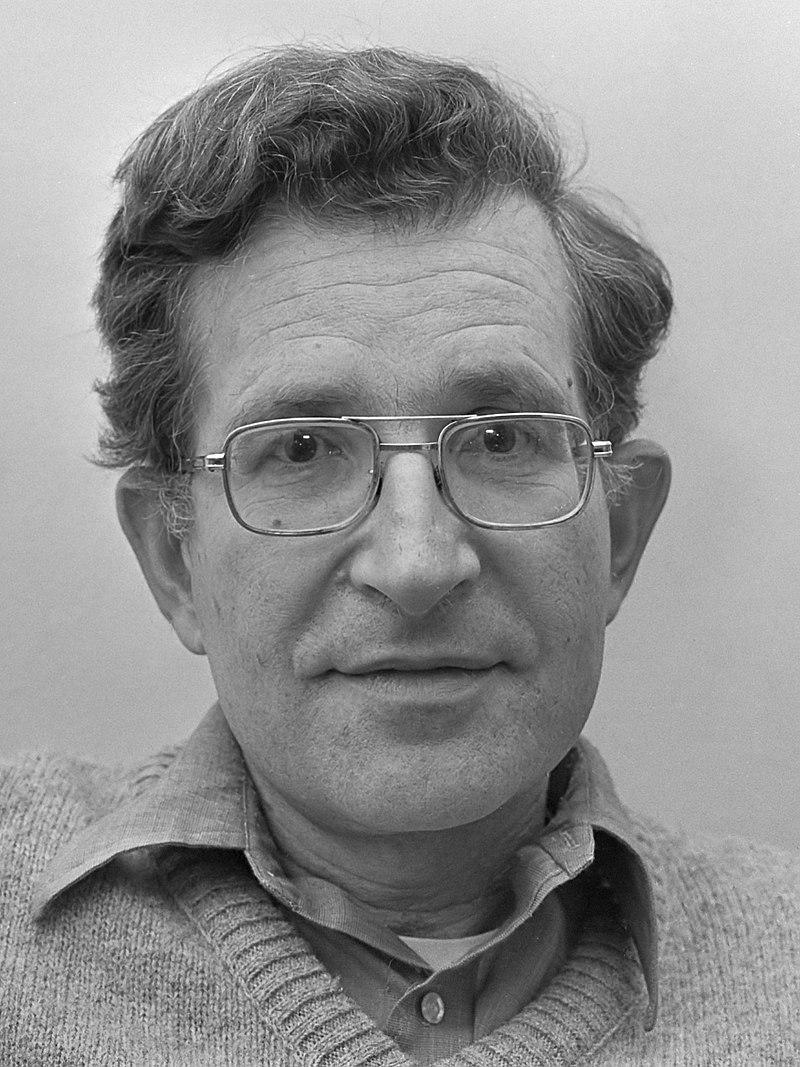
He embraced Ahad Ha’am’s view that Zionism should “avoid a narrow, limited nationalism which sees no further than itself” and “should be based on justice and law, absolute equality and human brotherhood,”[11] which unfortunately has not developed.
When Chomsky spent several months in an Israeli kibbutz in 1948, he said that he enjoyed aspects of it but was put off by what he perceived as the “appalling ideological conformity” and “exclusiveness and racist institutional setting.”[12]
Back in the U.S., Chomsky opposed Israel’s anti-democratic refusal to accept critical scrutiny. He compared intellectual apologists for Israel with Stalinists in the 1930s, particularly in their attempt to discredit the source of any critical analysis.
In detailed books and articles, Chomsky debunked the doctrines of the self-styled supporters of Israel, particularly in their claim that the Palestinian Liberation Organization (PLO) and the Arab states were rejectionists while the U.S. and Israel sought peace settlements, which he said was largely the reverse.
According to Chomsky, the “peace process” was really a strategic component of U.S.global policy that aimed primarily to secure Israeli advantage. Massive U.S. weapons supplies to Israel fueled greater repression of Palestinians in the occupied territory and bred over-confidence and arrogance among the Israelis that led to greater discrimination and atrocities against the Palestinians.
Chomsky considered Israel to be worse than apartheid South Africa because South Africa had to incorporate the Black population whereas “Israel wanted to get rid of the Palestinian population” and treated them like dogs—as Israeli General Moshe Dayan was explicit about.
A major turning point in history occurred in 1971, Chomsky says, when Egypt made an offer for a full peace treaty that the Israeli government led by Golda Meir rejected because Israel wanted to colonize the Sinai.
Basically their choice at the time, Chomsky wrote, was between security and expansion and chose the latter. By consequence, Israel would “become isolated, a pariah state, delegimitized, very much like South Africa, [and] survive only as long as the U.S. supports them.”[13]
Real Patriots
The second half of Levit’s book spotlights more voices of Jewish dissent right up to the present time. A number of the dissenters were Israeli army veterans whose military service awakened them to Israel’s inhumane treatment of the Palestinians. Many also faced persecution in different ways, including being forced from academic positions and into exile, being subjected to verbal abuse, and being physically attacked and having their lives threatened.
Each of the dissenters is remarkable in their own way.
Among them is Uri Avnery, a former member of the Irgun Zvu Leumi who served in a commando unit on the Egyptian front in Israel’s 1948 independence war before becoming publisher and editor of Ha’Olam Hazeh, an investigative newspaper.
As a Knesset (parliament) member from 1965 to 1974, Avnery established contacts with the PLO well before Israeli officials recognized it and met with PLO leader Yasser Arafat during Israel’s first Lebanon War in July, 1982. This was the first time that a Palestinian leader had ever met with an Israeli. Avnery was called a traitor at the time by many Israelis though his relationship with Arafat lasted until Arafat’s death in 2004.
In a 2011 article entitled “The Acts of Perfidious Traitors,” Avnery wrote that “at times of crisis, the real patriots, those who call for peace and compromise, in short the ‘lefties,’ are considered traitors, whereas the nationalists of all types, the warmongers, the inciters of hatred, are perceived as patriots. It is of them that the British philosopher Samuel Johnson said ‘their patriotism is the last refuge of the scoundrel.’”[14]
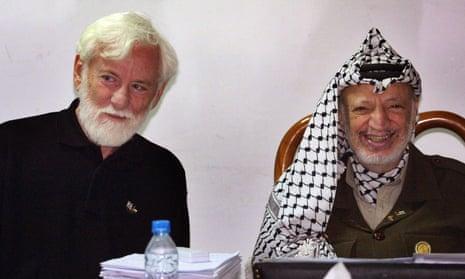
And so it remains today where the scoundrels rally behind the flag as they commit egregious war crimes and perpetuate a destructive cycle of violence that can only end badly.
The true patriots are meanwhile denigrated[15] or ignored, even though they draw on a proud tradition spotlighted in Levit’s book which should be more widely embraced.
The Jewish Talmud interestingly references prophets from ancient times who often rendered harsh judgments on Jewish monarchs, leading citizens and the Israeli nation itself—in a direct precursor to today. These prophets too were maligned or silenced in their lifetime, though anyone looking back on the history can see that wisdom was on their side.

-
Daphna Levit, Wrestling With Zionism: Jewish Voices of Dissent (Northampton, MA: Olive Branch Press, 2020), 116. ↑
-
Michael Hudson in “Were the Biblical Prophets Anti-Semitic?” (Counterpunch, November 20, 2023) writes that today such prophets would be attacked as anti-semites by the political right and center. ↑
-
Levit, Wrestling With Zionism, 26, 27. ↑
-
Levit, Wrestling With Zionism, 28. ↑
-
Levit, Wrestling With Zionism, 31. ↑
-
Levit, Wrestling With Zionism, 35. ↑
-
Levit, Wrestling With Zionism, 39. ↑
-
Levit, Wrestling With Zionism, 49. ↑
-
Levit, Wrestling With Zionism, 64, 65. ↑
-
Levit, Wrestling With Zionism, 66, 67. Leibowitz raged in the 1980s and 1990s until his death at the growing savagery of Israeli society, seeing the nation as entirely dependant on a thin line of support from the White House, which was destined to grow thinner as the world began to recognize its misdeeds. “Above all, the state, which was to have been the pride and glory of the Jewish people, is rapidly becoming an embarassment to it,” he wrote. ↑
-
Levit, Wrestling With Zionism, 72. ↑
-
Levit, Wrestling With Zionism, 73. ↑
-
Levit, Wrestling With Zionism, 79. ↑
-
Levit, Wrestling With Zionism, 104. ↑
-
Israel Frey, an Israeli journalist, had to go into hiding after speaking out against Israel’s attacks on civilians in Gaza in late October. He wrote on social media that “anyone [in Israel] showing empathy for the pain we cause these innocents is labeled traitor [and is] being threatened, like the blood of the people of Gaza is worth nothing as if our war crimes will comfort our victims.” ↑
CovertAction Magazine is made possible by subscriptions, orders and donations from readers like you.
Blow the Whistle on U.S. Imperialism
Click the whistle and donate
When you donate to CovertAction Magazine, you are supporting investigative journalism. Your contributions go directly to supporting the development, production, editing, and dissemination of the Magazine.
CovertAction Magazine does not receive corporate or government sponsorship. Yet, we hold a steadfast commitment to providing compensation for writers, editorial and technical support. Your support helps facilitate this compensation as well as increase the caliber of this work.
Please make a donation by clicking on the donate logo above and enter the amount and your credit or debit card information.
CovertAction Institute, Inc. (CAI) is a 501(c)(3) non-profit organization and your gift is tax-deductible for federal income purposes. CAI’s tax-exempt ID number is 87-2461683.
We sincerely thank you for your support.
Disclaimer: The contents of this article are the sole responsibility of the author(s). CovertAction Institute, Inc. (CAI), including its Board of Directors (BD), Editorial Board (EB), Advisory Board (AB), staff, volunteers and its projects (including CovertAction Magazine) are not responsible for any inaccurate or incorrect statement in this article. This article also does not necessarily represent the views the BD, the EB, the AB, staff, volunteers, or any members of its projects.
Differing viewpoints: CAM publishes articles with differing viewpoints in an effort to nurture vibrant debate and thoughtful critical analysis. Feel free to comment on the articles in the comment section and/or send your letters to the Editors, which we will publish in the Letters column.
Copyrighted Material: This web site may contain copyrighted material the use of which has not always been specifically authorized by the copyright owner. As a not-for-profit charitable organization incorporated in the State of New York, we are making such material available in an effort to advance the understanding of humanity’s problems and hopefully to help find solutions for those problems. We believe this constitutes a ‘fair use’ of any such copyrighted material as provided for in section 107 of the US Copyright Law. You can read more about ‘fair use’ and US Copyright Law at the Legal Information Institute of Cornell Law School.
Republishing: CovertAction Magazine (CAM) grants permission to cross-post CAM articles on not-for-profit community internet sites as long as the source is acknowledged together with a hyperlink to the original CovertAction Magazine article. Also, kindly let us know at info@CovertActionMagazine.com. For publication of CAM articles in print or other forms including commercial internet sites, contact: info@CovertActionMagazine.com.
By using this site, you agree to these terms above.
About the Author

Jeremy Kuzmarov holds a Ph.D. in American history from Brandeis University and has taught at numerous colleges across the United States. He is regularly sought out as an expert on U.S. history and politics for radio and TV programs and co-hosts a radio show on New York Public Radio and on Progressive Radio News Network called “Uncontrolled Opposition.”
He is Managing Editor of CovertAction Magazine and is the author of six books on U.S. foreign policy, including Obama’s Unending Wars (Clarity Press, 2019), The Russians Are Coming, Again, with John Marciano (Monthly Review Press, 2018), Warmonger. How Clinton’s Malign Foreign Policy Launched the U.S. Trajectory From Bush II to Biden (Clarity Press, 2023); and with Dan Kovalik, Syria: Anatomy of Regime Change (Baraka Books, 2025).
Besides these books, Kuzmarov has published hundreds of articles and contributed to numerous edited volumes, including one in the prestigious Oxford History of Counterinsurgency .
He can be reached at jkuzmarov2@gmail.com and found on substack here.

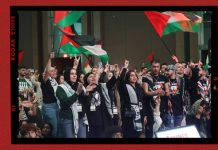




The Mosaic Commandments weren’t about creating a fair society. They were about imposing harsh punishments for disobedience to “God’s” commandments which the Jewish courts called Sanhedrins were free to interpret however they wished and the Pharisees the religious leaders of the Jewish people were known to be self righteous liars and hypocrites who didn’t practice what they preached. The Law of Moses was based on the Code of Hammurabi the first King of Babylon. The “Eye for an Eye” Code of Justice was all about keeping people in fear of their rulers who all claim to be servants of God or God’s representatives.
One might also mention the Jewish US journalist I.F. Stone, Israeli historian Shlomo Sand and his book( The invention of the Jewish People), Max Blumenthal’s Goliath, Norman Finkelstein, and Israeli historian Ilan Pappe’.
Reading from https://pedoempire.org/chapter-27-the-rothschild-banking-dynasty-how-zionist-luciferian-overlords-came-to-rule-the-earth/ that tells how Israel was created as a Rothschild outpost to control Middle East oil and other natural resources, please know that Theodore Herzl and other key founders of the state of Israel also had high minded humanitarian justice views and were inspired and informed by the writings of Henry George regarding how to solve the problem of land hoarding, speculation and rent-seeking. So I am hereby bringing your attention to an important article by Dusty Sklar on Henry George and Zionism found here: https://jewishcurrents.org/henry-george-zionism and here:
https://alannahartzok.substack.com/p/zionism-and-land
Same, old same…that which displeases the Zionists/Jews gets buried six feet deep – not forgetting all the smearing that takes place. If you can’t stand the heat…get out of the kitchen. Is our Western world now ruled by USRAEL???
Thank you for this most excellent article. Yes, the modern day prophets predicted it all, and a number of reporters documented the ongoing cruelties, right from the start, against Palestinians. One of those reporters was Ralph Schoenman. His book, The Hidden History of Zionism, published in 1988, should be on every shelf, and your article needs to reach every screen.
This article makes the following statement:
“:The tradition harked back to the prophets of ancient Israel like Isaiah, Jeremiah, Ezekiel, and Malachi who criticized kings, the wealthy and corrupt courts for violating the Mosaic commandments to create a fair and equitable society”
But the prophets Isaiah and Ezekiel also predicted the eventual creation of the State of Israel as described below, so the “prophets” referred in the article are more like
analysts than prophets.
(please note I am not a religious person so I have no beliefs or opinions about this)
The Gathering of Israel , or the Ingathering of the Jewish diaspora, is the biblical promise of Deuteronomy 30:1–5, made by Moses to the Israelites prior to their entry into the Land of Israel.
During the days of the Babylonian captivity, writings by the Israelite prophets Isaiah and Ezekiel encouraged their people with the promise of a future gathering of the exiles to the Land of Israel. Since the destruction of the Second Temple in 70 AD, the continual hope for exiled Jews’ return to the Land of Israel has served as a core theme of Judaism. Maimonides, a prominent medieval Jewish scholar, connected the materialization of this return with the coming of the Davidic Messiah